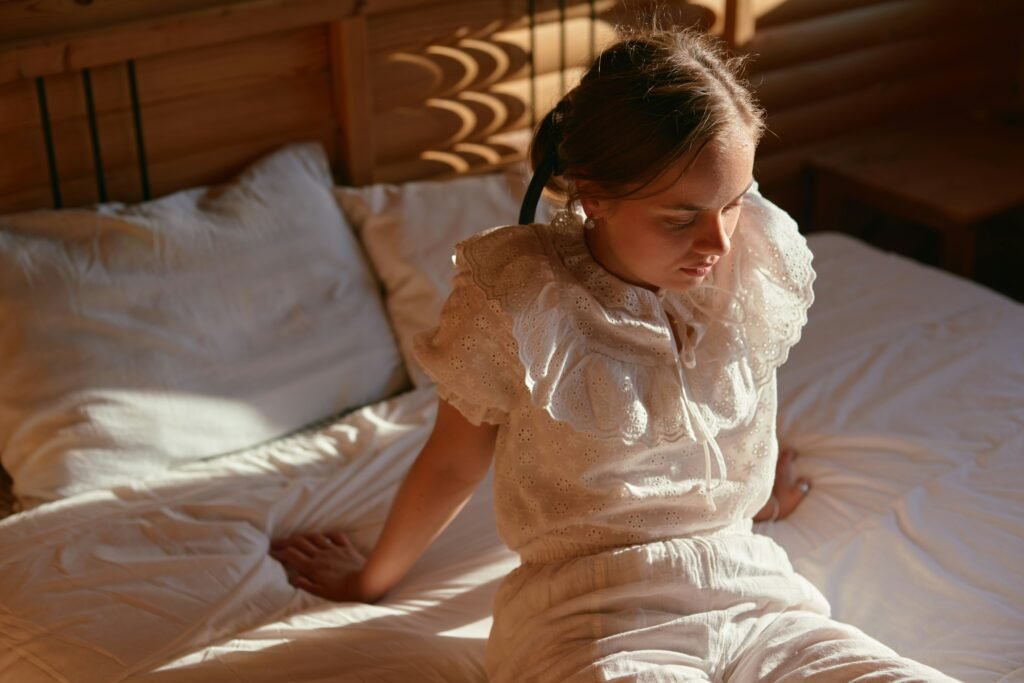A list of common fashion mistakes starts with underwear chosen at the beginning of assembling an outfit. Many of us love bright white lingerie because of its freshness and immaculacy. As counterintuitive as it seems, white underwear shouldn’t be worn under white clothing. It will be as bright and visible beneath your duds as any other color of underwear you would choose.

As a rule of thumb, the nude is the only tonality to put on under white shirts and pants to keep the overall image clean and classy. White garments are unforgiving when it comes to displaying lingerie. Moreover, while every other color works out pretty well applied to an entire outfit, white doesn’t end up favorably in the full-on version with long legs and sleeves. So, choose the proper cut of your outfit’s upper and bottom parts if you don’t want to resemble a medical specialist or laboratory worker.

Avoid wearing white throughout the entire outfit, or embellish it with an outstanding accessory to help break the unwanted association. Another good practice when picking clothing in all shades of white is paying attention to the density of the fabric. No other color has such a low tolerance for transparencies, so always remember to try each white gear you intend to buy if you aren’t planning on revealing the layers you wear beneath. Wearing white, loose clothes enriches your style with unprecedented elegance. Yet, if you’re not fully satisfied with the size of your silhouette or its particular parts, you must handle the maneuvers of styling white gear well. As much as black can make us slimmer, white does the opposite (especially loose cuts).

Clothing should be accompanied by accessories of contrasting colors, not similar ones, unless you want to turn into a walking whipped cream without sprinkles! So, if you want your accessories to be noticeable, pick those whose tonality stands out on the white background. A contrasting element of your all-white outfit can be a hat, a belt, or a coat. It’s an open secret that white garments get creased and dirty in the blink of an eye, so it’s in your hands to make sure you take them on you only to the most controllable, calm environments.

The basic crisp white isn’t for every skin tonality, but there are other options for every type. Skin tones with pink and blue undertones (so-called cool ones) will go together with bright white, which is the most advantageous with silver accessories. Skin tones showing yellow, orange, or red undertones will match classic white or cream with gold accessories. Warm skin tones go hand in hand with cream or ivory whites. Olive skin tones, which display a greenish undertone, fit creams perfectly. Black skin tones harmonize with all whites or creams.
